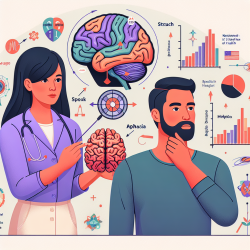Mental health and substance use problems (MISUP) present significant challenges worldwide. In Brazil, these issues are compounded by stigma, which hinders access to care and affects treatment outcomes. A recent situational analysis of primary health care centers in Brazil sheds light on these challenges and offers valuable insights for practitioners seeking to improve their skills and promote inclusivity in educational settings.
The Brazilian Context: A Socioecological Perspective
The study conducted in Ribeirão Preto, Brazil, utilized a socioecological framework to understand MISUP-related stigma at multiple levels: national, regional, organizational, and interpersonal. This comprehensive approach revealed a complex interplay of factors that contribute to stigma and discrimination in primary health care (PHC) settings.
National Level Insights
- Decentralization of Services: Brazil's federal policies promote decentralization to increase access to mental health services. However, integration into PHC remains inadequate.
- Capacity Building: There is a lack of government-supported initiatives for capacity building among PHC professionals, leading to insufficient expertise in mental health care.
Regional Challenges
- Confusion in Care Division: Misunderstandings about the division of care between PHC and specialized services lead to increased burdens on professionals.
- Civil Society Participation: Although policies exist for service user involvement, individuals with lived experience are often excluded from discussions about mental health service provision.
Organizational and Interpersonal Dynamics
- Multidisciplinary Teams: While these teams offer diverse expertise, collaboration is hindered by differing theoretical frameworks and unclear roles.
- Paternalistic Treatment Approaches: Health professionals often exclude patients from treatment decisions, perpetuating stigma and reducing treatment adherence.
Implementing Research Outcomes in Educational Settings
The findings from this study provide several actionable strategies that can be adapted for schools to address MISUP-related stigma:
1. Enhance Capacity Building Initiatives
Investing in training programs for educators and school staff is crucial. These initiatives should focus on building mental health knowledge and promoting collaborative approaches to care. Training should incorporate reflection on personal biases to foster sensitivity and empathy among staff members.
2. Promote Shared Decision-Making
Encouraging shared decision-making between students and school counselors can empower students with MISUP. This approach fosters positive relationships based on empathy and respect, improving treatment adherence and reducing stigma.
3. Increase Inclusion of Students with Lived Experience
Schools should actively involve students with MISUP in discussions about mental health policies and programs. Their perspectives can offer valuable insights into creating supportive environments that promote social inclusion.
4. Implement Contact-Based Education Programs
Create opportunities for interaction between students with MISUP and their peers outside of formal counseling sessions. Organized events or peer support groups can facilitate conversations that challenge stereotypes and promote understanding.
The Road Ahead: Encouraging Further Research
This situational analysis highlights the need for continued research into effective anti-stigma strategies tailored to specific cultural contexts. Practitioners are encouraged to explore these findings further and consider how they can be applied within their own educational settings.
To read the original research paper, please follow this link: A situational analysis of primary health care centers in Brazil: challenges and opportunities for addressing mental illness and substance use-related stigma.










